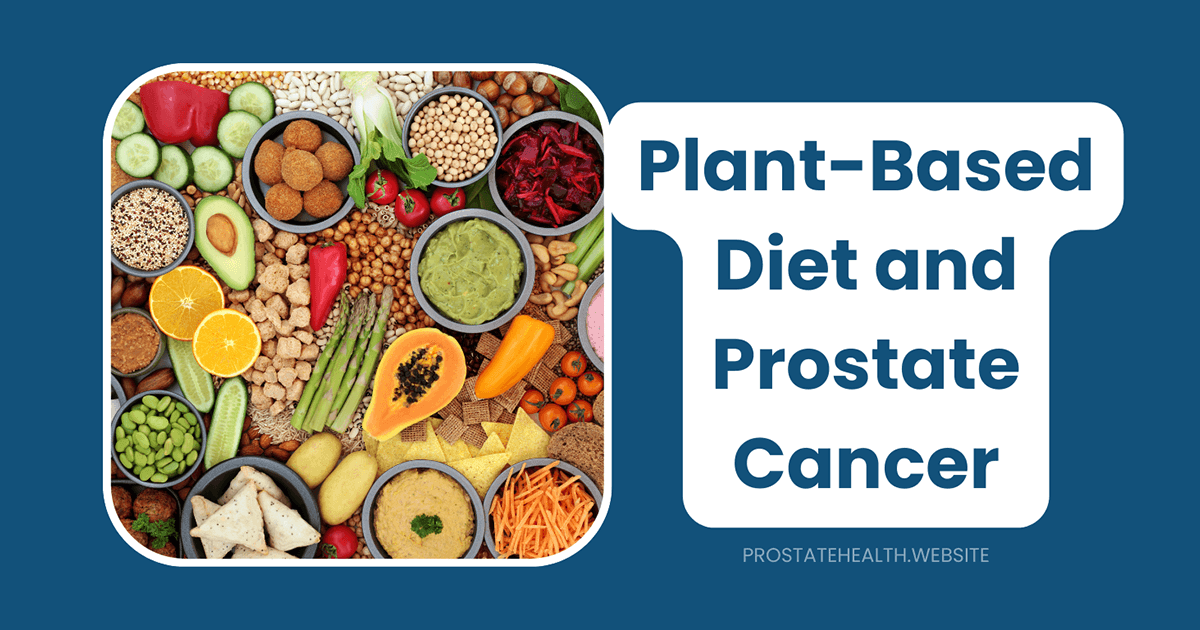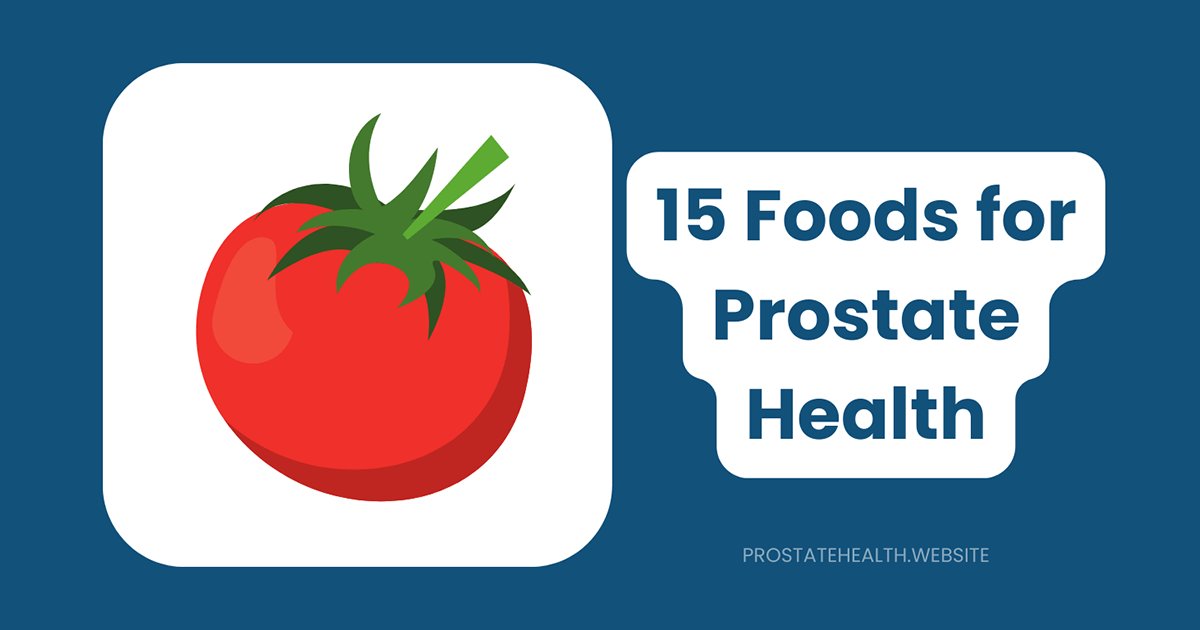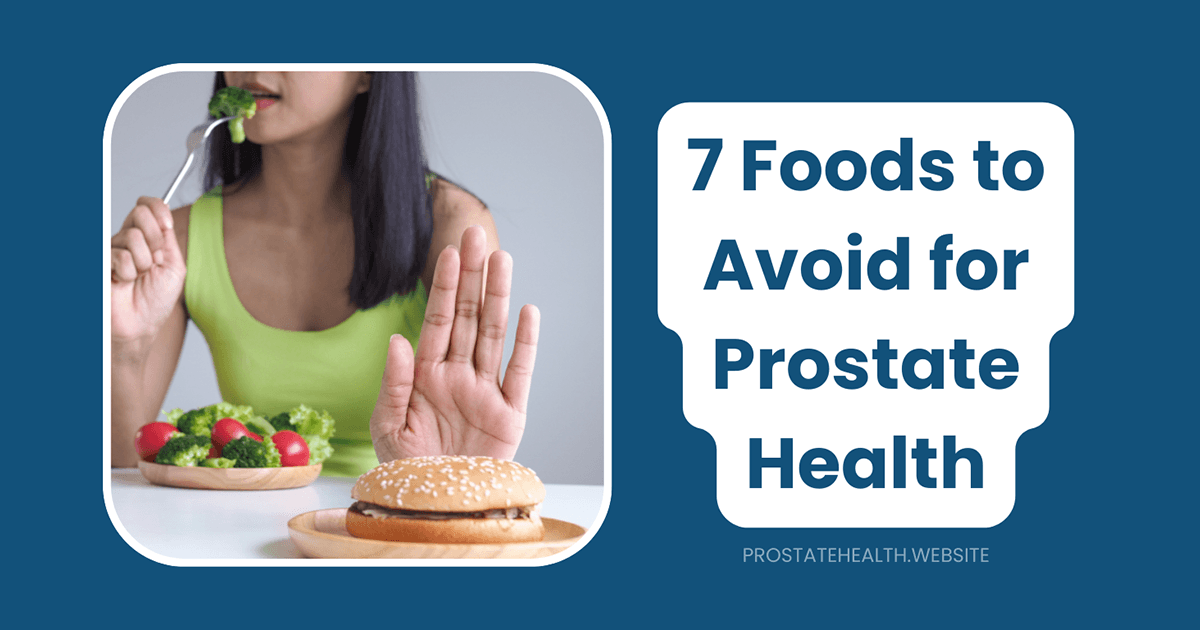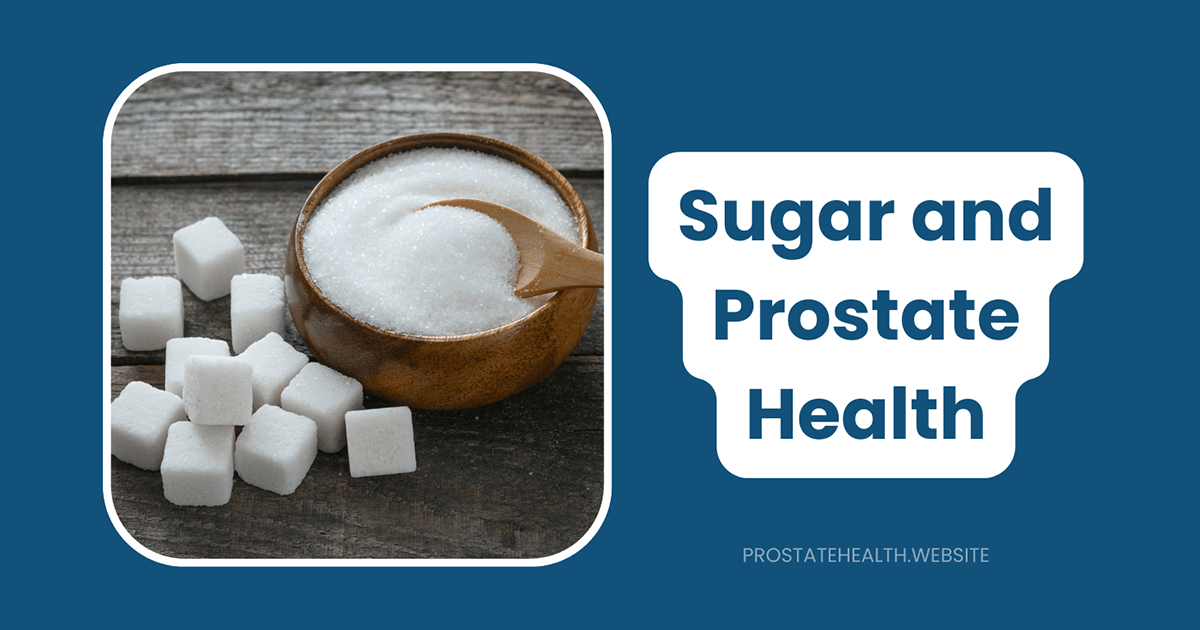Plant-Based Eating for Prostate Cancer Prevention: The Power of Plants for Men’s Health

When Tom, a 57-year-old construction manager, received slightly elevated PSA results at his annual physical, his doctor mentioned lifestyle changes that might help. “I was skeptical that changing what I eat could actually impact my prostate health,” Tom admits. “But after researching the evidence, I decided to give plant-based eating a serious try.”
Six months later, Tom’s PSA levels had stabilized, and he’d lost 15 pounds without feeling hungry or deprived. “I never thought I’d prefer a lentil burger to beef, but here I am, actually enjoying this way of eating and feeling better than I have in years.”
Tom’s experience aligns with a growing body of research suggesting that plant-based diets may significantly reduce prostate cancer risk and slow progression in men already diagnosed. With prostate cancer affecting approximately one in eight men during their lifetime and more than 250,000 new cases diagnosed annually in the United States, these findings offer hope for a dietary approach to prevention.
Let’s explore the compelling science behind plant-based eating for prostate health and practical ways to incorporate more protective plant foods into your daily routine.
The Science: What Research Reveals About Plants and Prostate Cancer
Recent research provides increasingly strong evidence for the protective effects of plant-based diets against prostate cancer:
Groundbreaking 2024 UCSF Study
A landmark study from the University of California, San Francisco published in 2024 followed over 2,000 men with localized prostate cancer. The findings were remarkable:
- Men who consumed the most plant-based foods had a 47% lower risk of cancer progression compared to those who ate the least
- Even modest increases in plant food consumption—just one or two more servings daily—were associated with reduced cancer progression
- Greater consumption of plant foods was linked to improved quality of life, including better sexual and urinary function
Lead researcher Dr. Stacey Kenfield noted: “Our findings suggest that increasing intake of healthy plant foods and decreasing intake of less healthy animal foods may help men with prostate cancer better manage their disease.”
Health Professionals Follow-Up Study
Another major study published in the American Journal of Clinical Nutrition followed 47,239 men for nearly three decades. The results showed:
- Greater overall plant-based consumption was associated with a 19% lower risk of fatal prostate cancer
- In men under 65, a healthful plant-based diet was linked to a 44% lower risk of lethal prostate cancer
- The protective effects were strongest for aggressive forms of the disease
JAMA Network Open Research
A 2023 study published in JAMA Network Open reinforced these findings:
- Men in the highest quintile of plant-based diet adherence had a 52% lower risk of prostate cancer progression compared to those in the lowest quintile
- The benefits remained significant even after adjusting for other factors like age, BMI, and clinical characteristics
How Plant-Based Diets Protect Against Prostate Cancer
What makes plant foods so powerful for prostate health? Research has identified several key mechanisms:
1. Anti-Inflammatory Effects
Chronic inflammation is a known driver of cancer development and progression. Plant foods are naturally anti-inflammatory due to:
- Antioxidant compounds that neutralize free radicals
- Fiber that supports a healthy gut microbiome, reducing systemic inflammation
- Phytonutrients that modulate inflammatory pathways
Dr. William Li, author of “Eat to Beat Disease,” explains: “Many plant foods contain natural anti-inflammatory compounds that can help calm the immune system and reduce the chronic inflammation that can promote cancer growth.”
2. Hormone Regulation
Prostate cancer is often hormone-sensitive, and plant-based diets may help regulate hormones in beneficial ways:
- Lower IGF-1 levels: Insulin-like growth factor 1 can promote cancer cell growth
- Reduced testosterone conversion: Some plant compounds may inhibit the conversion of testosterone to dihydrotestosterone (DHT), which can stimulate prostate cancer cells
- Phytoestrogens: Plant compounds that may help balance hormone activity
3. Detoxification Support
Plant foods support the body’s natural detoxification systems:
- Cruciferous vegetables contain compounds that enhance the liver’s ability to process and eliminate potential carcinogens
- Antioxidants help neutralize harmful substances before they can damage DNA
- Fiber binds to toxins in the digestive tract and facilitates their removal
4. Direct Anti-Cancer Activity
Certain plant compounds have been shown to directly inhibit cancer cells:
- Lycopene from tomatoes can slow prostate cancer cell growth
- Sulforaphane from cruciferous vegetables may selectively target and kill cancer cells
- EGCG from green tea can influence tumor growth and hormone signaling
The Prostate-Protective Plant Foods: What to Eat More Of
Based on the latest research, certain plant foods deserve special attention for their prostate-protective properties:
Tomatoes and Lycopene-Rich Foods
Lycopene, the compound that gives tomatoes their red color, has shown particular promise for prostate health:
- A review of 24 studies found that men who consumed more tomatoes had a lower likelihood of developing prostate cancer
- Lycopene appears to be most beneficial when tomatoes are cooked, as this increases bioavailability
- Consuming tomatoes with healthy fats further enhances lycopene absorption
Best sources: Cooked tomato sauce, tomato paste, sun-dried tomatoes, watermelon, pink grapefruit
Try this: Add extra tomato paste to soups and stews, or enjoy a weekly pasta with marinara sauce.
Cruciferous Vegetables
These vegetables contain glucosinolates that break down into compounds like sulforaphane and indole-3-carbinol, which have shown anti-cancer properties:
- Studies indicate men who consume more cruciferous vegetables may have a significantly lower risk of prostate cancer
- These compounds may help slow the progression of existing prostate cancer
- They support the body’s detoxification pathways
Best sources: Broccoli, cauliflower, brussels sprouts, cabbage, kale, arugula, watercress, radishes
Try this: Aim for at least 5 servings weekly. Lightly steam broccoli to preserve the cancer-fighting compounds.
Legumes and Soy Foods
Beans, lentils, and soy foods provide plant protein and beneficial compounds:
- Phytoestrogens in soy may help regulate hormone activity related to prostate cancer
- One review indicated a 20% decrease in prostate cancer risk for those with higher phytoestrogen intake
- Legumes provide fiber that supports gut health and helps eliminate excess hormones
Best sources: Soybeans, tofu, tempeh, edamame, lentils, chickpeas, black beans
Try this: Replace meat with legumes in at least 2-3 meals per week. Add tofu to stir-fries or blend silken tofu into smoothies.
Nuts and Seeds
These plant foods provide healthy fats, protein, and cancer-fighting compounds:
- Walnuts contain polyphenols and omega-3 fatty acids that may reduce inflammation
- Flaxseeds provide lignans that can influence hormone metabolism
- Brazil nuts are rich in selenium, which some studies suggest may be protective against prostate cancer
Best sources: Walnuts, flaxseeds, chia seeds, hemp seeds, pumpkin seeds, Brazil nuts
Try this: Add 1-2 tablespoons of ground flaxseed to your daily oatmeal or smoothie.
Berries and Colorful Fruits
Rich in antioxidants and anti-inflammatory compounds:
- Pomegranates have shown promise in slowing PSA doubling time in men with prostate cancer
- Berries contain ellagic acid and other compounds that may inhibit cancer cell growth
- Colorful fruits provide a variety of phytonutrients that support overall health
Best sources: Pomegranates, blueberries, strawberries, blackberries, cherries
Try this: Enjoy a daily handful of berries as a snack or dessert.
Green Tea
Contains catechins, particularly epigallocatechin gallate (EGCG):
- Laboratory studies show EGCG may inhibit prostate cancer cell growth
- Observational studies suggest regular green tea consumption may be associated with lower prostate cancer risk
- Provides antioxidant and anti-inflammatory benefits
Try this: Replace one cup of coffee with green tea daily.
Building Your Plant-Based Plate for Prostate Health
Transitioning to a more plant-based diet doesn’t mean you must become strictly vegetarian or vegan. Research suggests benefits even from moderate increases in plant foods. Here’s how to build a prostate-protective plate:
The 2/3 – 1/3 Rule
- Make at least 2/3 of your plate plant foods (vegetables, fruits, whole grains, legumes)
- Limit animal foods to no more than 1/3 of your plate, if included
Focus on Whole Foods
- Choose minimally processed plant foods whenever possible
- Limit or avoid ultra-processed vegan foods, which may not offer the same benefits
The Rainbow Approach
- Aim for at least 5 different colors of fruits and vegetables daily
- Each color represents different phytonutrients with unique health benefits
Practical Meal Ideas
Breakfast Options:
- Oatmeal topped with ground flaxseed, berries, and walnuts
- Tofu scramble with turmeric, spinach, and tomatoes
- Whole grain toast with avocado and tomato slices
Lunch Options:
- Lentil soup with a side salad of dark leafy greens
- Buddha bowl with quinoa, roasted vegetables, chickpeas, and tahini dressing
- Hummus wrap with plenty of vegetables and a side of fresh fruit
Dinner Options:
- Stir-fry with tofu, broccoli, bell peppers, and brown rice
- Bean and vegetable chili topped with avocado
- Pasta with tomato sauce, white beans, and sautéed kale
Snack Options:
- Apple slices with almond butter
- Handful of walnuts and dried cherries
- Hummus with carrot and cucumber sticks
- Green smoothie with spinach, banana, and berries
Gradual Transitions: Making Plant-Based Eating Sustainable
For many men, especially those accustomed to a meat-centered diet, an overnight switch to plant-based eating isn’t realistic. Consider these gradual approaches:
The “Meatless Monday” Strategy
- Start with one day per week of fully plant-based eating
- Gradually increase to 2-3 days weekly as you discover recipes you enjoy
The “Before 6” Approach
- Eat plant-based before 6 PM
- Allow more flexibility with dinner while still increasing overall plant consumption
The “Meat as Condiment” Method
- Use small amounts of meat for flavor rather than as the centerpiece
- For example, add a small amount of chicken to a primarily vegetable stir-fry
The “Crowding Out” Technique
- Focus on adding more plant foods rather than eliminating animal foods
- As your plate fills with more plants, animal foods naturally get crowded out
Dr. Michael Greger, author of “How Not to Die,” suggests: “The most successful dietary changes are those that add foods rather than subtract them. Focus first on incorporating more protective plant foods before worrying about eliminating less healthy options.”
Beyond Diet: Lifestyle Factors That Complement Plant-Based Eating
While diet plays a crucial role in prostate health, other lifestyle factors work synergistically with plant-based eating:
Regular Physical Activity
Research from the Institute for Functional Medicine indicates that “physical activity is associated with decreased prostate cancer risk and improved metabolic health after a prostate cancer diagnosis.”
Aim for:
- At least 150 minutes of moderate activity weekly
- Strength training 2-3 times weekly
- Reduced sitting time (a 2022 meta-analysis showed that “high sedentary behavior increases the risk of developing several cancers, including prostate cancer”)
Stress Management
Chronic stress may impact prostate health through elevated cortisol levels, which some research suggests may correlate with higher PSA levels.
Consider incorporating:
- Mindfulness meditation
- Time in nature
- Adequate sleep (7-8 hours nightly)
Maintaining a Healthy Weight
Obesity is a known risk factor for aggressive prostate cancer. Plant-based diets naturally support healthy weight management through:
- Higher fiber content, increasing satiety
- Lower caloric density of most plant foods
- Improved insulin sensitivity
Common Questions About Plant-Based Eating for Prostate Health
Is it too late to start if I already have prostate cancer?
No, it’s never too late. The 2024 UCSF study specifically found benefits for men already diagnosed with prostate cancer, showing a 47% lower risk of progression among those eating the most plant foods.
Do I need to go completely vegan to see benefits?
No. While fully plant-based diets may offer the greatest benefits, research shows advantages even from moderate increases in plant food consumption. The Health Professionals Follow-Up Study noted that fewer than 1% of participants followed a strict vegetarian or vegan diet, yet still found significant protective effects from higher plant food consumption.
What about protein? Don’t men need animal protein?
All plant foods contain protein, and a varied plant-based diet can easily provide adequate protein for men’s health. Particularly protein-rich plant foods include:
- Legumes (beans, lentils, peas)
- Soy foods (tofu, tempeh, edamame)
- Seitan (wheat protein)
- Nuts and seeds
- Whole grains like quinoa
Will plant-based eating affect my testosterone levels?
Research does not support concerns about plant-based diets lowering testosterone. In fact, some studies suggest that the fiber in plant foods may help maintain healthy hormone balance. If you have specific concerns about hormones, discuss them with your healthcare provider.
Are there any supplements I should take on a plant-based diet?
A well-planned plant-based diet can provide most nutrients, but depending on how strictly you follow it, you might consider:
- Vitamin B12 (particularly important for those fully excluding animal products)
- Vitamin D (important for everyone, regardless of diet)
- Omega-3 fatty acids (if not consuming foods like flaxseeds, walnuts, or algae)
Always consult with your healthcare provider before starting supplements.
Success Stories: Men Transforming Their Prostate Health Through Plants
James, 62, PSA reduction “After my PSA levels started rising, my urologist suggested dietary changes before considering medication. I was skeptical but committed to a mostly plant-based approach for six months. My PSA dropped from 4.7 to 3.1, and I lost 22 pounds without trying. The biggest surprise was how much I enjoy this way of eating—I don’t feel deprived at all.”
Robert, 70, managing post-treatment “After completing radiation for prostate cancer, I wanted to do everything possible to prevent recurrence. Two years into following a plant-based diet, my PSA remains undetectable, and my energy levels are better than they were before treatment. My oncologist is impressed with my overall health improvements.”
Michael, 55, active surveillance “When I was diagnosed with low-risk prostate cancer, I chose active surveillance but wanted to be proactive. Eighteen months into following a plant-rich diet, my latest biopsy showed no cancer progression, and my doctor is very pleased with my PSA stability. I can’t say for sure it’s the diet, but I’m not taking any chances by changing course.”
Conclusion: A Delicious Approach to Prostate Protection
The evidence is increasingly clear: plant-based eating offers a powerful, accessible strategy for prostate cancer prevention and management. Unlike many medical interventions, this approach comes with only positive side effects—improved heart health, better weight management, reduced risk of other cancers, and often, increased energy and vitality.
As Dr. Dean Ornish, whose research has demonstrated the power of lifestyle medicine, puts it: “Eat well, move more, stress less, love more. Your genes are not your fate.”
Ready to harness the power of plants for your prostate health? Start with just one plant-based meal today, and build from there. Your prostate—and likely your entire body—will thank you.






